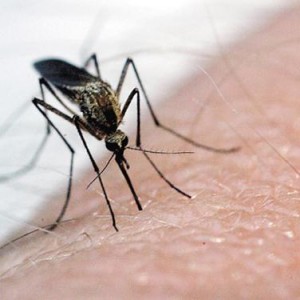
LANCASTER – A West Nile Virus positive chicken in Quartz Hill marks the start of the 2016 WNV season in the Antelope Valley. The chicken is located in a flock near 45th Street West and Avenue L, authorities said Thursday.
“The hot weather that we have been experiencing lately is creating ideal conditions for mosquito breeding and virus transmission,” said Antelope Valley Mosquito & Vector Control District Manager Cei Kratz. “Water turns green faster and mosquitoes develop from egg to adults in only five days.”
West Nile Virus is transmitted by the bite of an infected mosquito. Although most people who are infected do not show any symptoms, West Nile Virus is a potentially debilitating disease. Even mild cases of West Nile fever can cause patients enormous pain and discomfort for months.
District officials are urging local residents to follow these tips to avoid getting mosquito bites and West Nile Virus infection:
- Check your property for any standing water from sprinklers or thunder showers, and dump or drain all standing water. Keep swimming pools maintained or completely dry.
- Dress in light-colored long-sleeved clothes during mosquito activity. Mosquitoes are most active at dusk and dawn.
- Defend against mosquitoes by use repellents (i.e., DEET, Picaridin, oil of lemon eucalyptus, IR3535).
- Keep screen doors and windows in good repair and close them.
- Turn on fans to keep mosquitoes away.
- Don’t use bug zappers near your patio – they attract more mosquitoes than they kill.
The California Department of Public Health, as of June 22, reported West Nile Virus activity from 19 counties in 243 dead birds, 185 mosquito samples, and two sentinel chickens.
To stay up-to-date on West Nile Virus activity and mosquito-related information in the Antelope Valley, visit www.avmosquito.org.
For more information, contact the Antelope Valley Mosquito & Vector Control District at 661-942-2917.
[Information via news release from the Antelope Valley Mosquito & Vector Control District.]
Previous related story: County health official: El Nino could increase West Nile virus cases in 2016